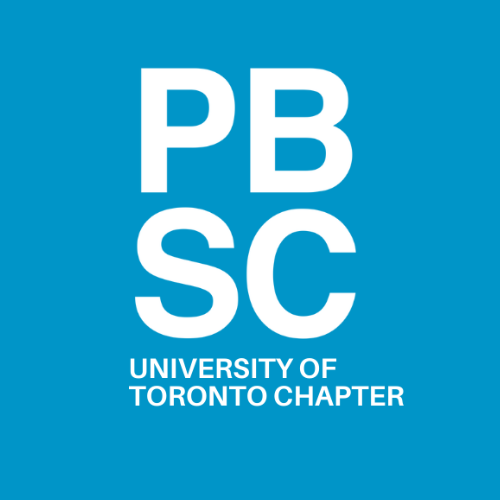Friends of Ruby: Trans ID Clinic (2 positions)
Area of Law: Identification
Friends of Ruby is dedicated to the progressive well-being of 2SLGBTQIA+ youth (aged 16-29) through mental health services, social services and housing. Their approach is comprehensive, involving mind, body and community. Their vision - a world where all 2SLGBTQIA+ young people feel validated, involved and empowered to lead healthier lives. To learn more about Friends of Ruby, check out their website here: https://www.friendsofruby.ca/
The Trans ID Clinic provides free legal information, form-filling services and referrals in a learning space that strives to be trans-positive, non-judgmental, anti-oppressive and inclusive. PBSC law student volunteers and lawyer supervisors will work collaboratively to assist trans and gender diver individuals with obtaining new pieces of identification. Initial intake is managed by Friends of Ruby, and all clinic sessions are hosted on pre-approved dates in conjunction with Friends of Ruby and PBSC.
Detailed Role of Students
Students are requested to make a two-year commitment to this project, which aims to increase the clinic's outreach and student involvement in the clinic. There may also be the opportunity to volunteer during the summer months. In recognition of the volunteer nature of the commitment Friends of Ruby acknowledges that this is a request and not a commitment.
After the initial intake is conducted by Friends of Ruby Staff, clients will be scheduled for an appointment at the Trans ID Clinic. Student volunteers will meet with clients remotely via Zoom or MS Teams or in person at Friends of Ruby from a private space on clinic dates. Student volunteers may be assigned to between 1-2 clinic(s) per month (this will depend on the number of clients booked in for each clinic sessions).
During the meetings, student volunteers will assist clients in filling out gender marker and name change applications for new identification and using the Volunteer Training Manual as a reference. Student volunteers will be assisted by a lawyer supervisor who will be present at the meeting, and will review, approve, and commission any final documents produced by the student volunteer.
It is anticipated that students will see two (2) clients per clinic, however this number may fluctuate depending on the capacity of the clinic and the needs of the clients. Student volunteers will be expected to adhere to Trans ID Clinic Guidelines which will be provided in advance of the first clinic session.
During off weeks, when the clinic is not running, students will support the research and the drafting of clinic materials, however this will depend on the needs of the clinic. Any materials containing legal information must be reviewed and approved by a supervising lawyer prior to use by the partner organization.
The clinic materials will include a step-by-step brochure which gives participants insight on how to start their gender marker and name changes. This will also include common scenarios that pop up during the Clinics. For example, if students are seeing a large number of participants who do not have access to their birth certificate, a section can be created to guide participants on what to do.
If there are multiple scenarios that students wish to highlight in the brochure, there will also be the option of creating a FAQ document separate from the brochure. This will also be material for staff to reference when conducting the Clinic. Students will also have the option to create and host a presentation for Friends of Ruby youth who are interested in beginning the name and gender marker change processes. Similarly to the brochure, this will not be legal advice, but instead an information-sharing session. The presentation may also be used by Friends of Ruby staff or future Trans ID Clinic students to host similar sessions in the future.
Time Commitment
- 2:45 pm to 3:00 pm: Clinic Prep
- 3:00 pm to 5:00 pm: Students to meet 1-on-1 with participants for a maximum of 30 minutes. Students take lead, while lawyers advise. Hosts to take inquiries from either party and debrief with volunteers for 10 minutes if necessary.
- 5:00 pm to 5:15 pm: Debrief as needed.
For in person clinics, student volunteers will be expected to attend in-person at Friends of Ruby during scheduled clinic dates which will not exceed 3-5 hours per week. During off weeks when the clinic is not running, students may have the possibility of supporting with research and drafting of clinic materials, however this can range from a commitment of 0-5 hours per week depending on the needs of the clinic
Required Training
Number of Students and Prerequisites
- How many students?
- Two students
- Can first year law students volunteer?
- First year students are encouraged to apply!
- Should you be bilingual?
- No, however additional languages are an asset.
- Any other expectations for this project?
- The following would be considered an asset, though are not required: administrative law, human rights law, poverty law, and clinical placement experience.
- Given the focus of the clinic, students that identify as trans or non-binary are encouraged to apply. Selected students should be able to demonstrate ongoing and meaningful allyship with the trans community. Additional assets include: experience working with trans folks, youth, 2SLGBTQIA+ communities; clinical/client-facing experience; social work background; and a strong sense of anti-oppression principles.
